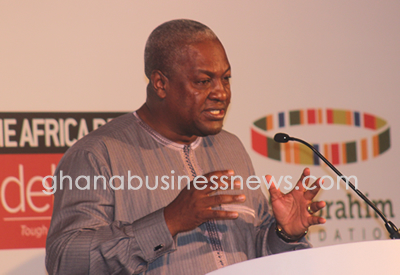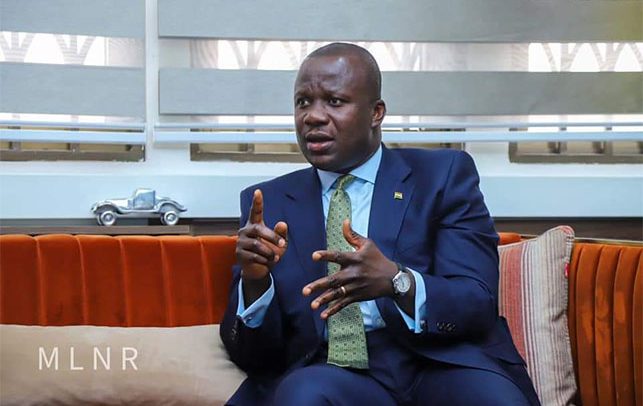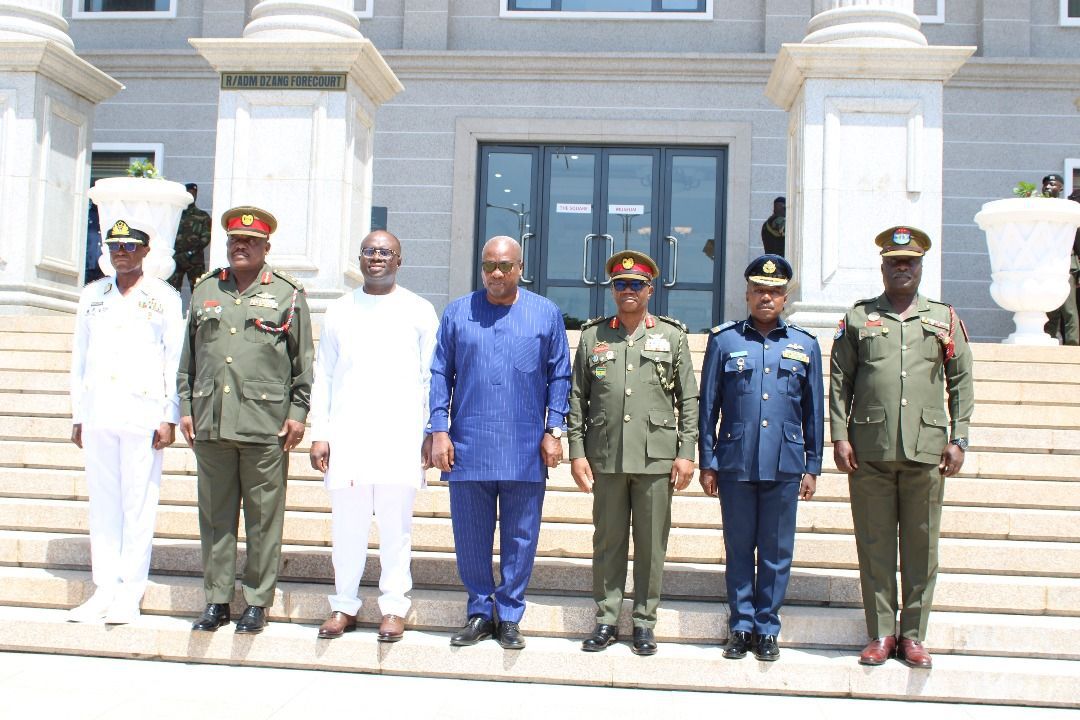
By Bernard TETTEH-DUMANYA (Dr)
Ghana’s ‘24-Hour Economy Plus’ initiative is said to be a cornerstone of President John Dramani Mahama’s ‘Ghana Reset Agenda’, which aimed to transform the nation’s economic framework by fostering continuous productivity across vital sectors including manufacturing, agriculture, healthcare, and digital services.
This ambitious policy objective is to move beyond the conventional 8-to-5 workday by providing significant incentives to businesses committed to round-the-clock operations, such as corporate income tax rebates, discounted night-time electricity tariffs, and streamlined regulatory processes.
For too long, the nation has grappled with deep-seated structural bottlenecks that have stifled sustainable growth and widened socio-economic disparities. Economically, Ghana’s heavy dependence on imports remains a critical weakness. In 2024 alone, the country spent around US$3 billion on food imports, despite having vast arable land and a long-standing agricultural heritage.
This reliance on external markets not only depletes foreign exchange reserves, fuels persistent Cedi depreciation and also stifles the growth of local agriculture and manufacturing. Domestic producers are often unable to compete with cheaper imports, resulting in idle production capacity and a limited export base dominated by unprocessed commodities such as gold, cocoa, and crude oil, which yield minimal value addition.
Although the manufacturing sector recorded a 6.6percent year-on-year growth in the first quarter of 2025, contributing 1.09 percentage points to overall GDP growth, its full potential remains constrained by systemic structural challenges and import saturation.
This fundamental structural weakness directly fuels what’s known as “jobless growth.” Even with commendable GDP growth rates in recent years, this expansion hasn’t generated enough quality employment opportunities for Ghana’s burgeoning youth population.
Youth unemployment remains a critical issue, surpassing 13percent for the general youth demographic and proving especially high among educated graduates, which represents a significant squandering of human capital investment. While the pervasive informal sector does offer livelihoods, it typically features low productivity and precarious employment, thereby failing to contribute substantially to the tax base or to broader economic transformation.
While listening to commentary from some experts and think tanks, I have observed a subtle narrative suggesting that the 24-Hour Economy Plus initiative is “much ado about nothing.” Though not always explicitly stated, such skepticism appears to downplay the strategic value of the policy. I respectfully disagree with these assessments, which may be academically grounded but often lack entrepreneurial insight and practical appreciation of economic transformation dynamics.
A critical analysis of the 24-Hour Economy Plus framework reveals a bold and necessary departure from Ghana’s historical development and transformation strategies since independence in 1960. Unlike Nkrumah’s 7-Year Plan, which focused heavily on state-led industrialization, or the 1980s Structural Adjustment Program, which emphasized liberalization and austerity, the 24-Hour Economy Plus champions private-sector-led, time-based productivity through shift systems and continuous economic activity across sectors.
It builds on the aspirations of Vision 2020 and the Ghana Poverty Reduction Strategies by emphasizing inclusive growth, but it goes further by operationalizing productivity in real-time. Compared to the Ghana Shared Growth and Development Agenda and the ‘Ghana Beyond Aid’ an initiative which focused on infrastructure development and financial independence, respectively. This policy introduces a pragmatic shift by maximizing utilization of existing infrastructure and promoting multi-sectoral synergy. It addresses longstanding gaps in previous policies by integrating urban informal economies, fostering digital inclusion, and unlocking the potential of the night-time economy to scale employment and competitiveness.
Moreover, the 24-Hour Economy Plus moves beyond temporary stimulus programs like the Ghana CARES ‘Obaatan Pa’ by embedding structural transformation into the core of Ghana’s economic framework. It replaces static planning with a dynamic, results-driven, and time-conscious model designed to generate jobs, boost domestic production, and stabilize the macroeconomic environment.
If implemented strategically, this policy could help Ghana break the persistent cycle of vulnerability to external shocks, fluctuating revenues, and foreign exchange volatility challenges that have undermined national development since independence. In this regard, the 24-Hour Economy Plus stands out not as an idealistic vision, but as one of Ghana’s most actionable and forward-thinking economic strategies to date.
Interestingly, there is also debates as to how Ghana could raise the estimated US$4 billion required to implement the policy. Contrary to the perception that such an ambitious initiative would necessitate support from the IMF or World Bank, I believe Ghana can fully finance this transformation through well-structured domestic resource mobilization strategies. By adopting off-balance-sheet financing mechanisms which include public-private partnerships, municipal and diaspora bonds, and the securitization of GIS and digital assets can unlock substantial capital without accruing unsustainable debt.
The government can further optimize internally generated funds and allocate petroleum revenues to support infrastructure development in industrial zones, local markets, and MSMEs. Tax incentives can be strategically reengineered to reward businesses that adopt round-the-clock operations, thereby stimulating employment and productivity.
Simultaneously, expanding energy access through solar mini-grids and digitizing public services via mobile money platforms, e-commerce ecosystems, and AI-enabled shift management tools will create the conditions for safe, efficient, and technology-driven 24-hour operations. Complementary institutional reforms, such as establishing a National Productivity Authority, revising labor laws to accommodate shift systems, and ensuring 24/7 functionality at customs, ports, and regulatory agencies, will further strengthen the enabling environment.
In my view, Ghana can mobilize the US$4 billion required through a blended financing strategy that includes: US$800 million from pension and insurance funds, US$500 million via diaspora bonds, US$400 million through municipal productivity bonds, US$1 billion in public-private partnerships, US$300 million from sovereign and stabilization funds, US$250 million through the securitization of digital assets, US$250 million in productivity-linked tax revenues, and US$100 million from domestic impact and philanthropic capital. All of this can be achieved without IMF or World Bank dependency. In my next article, I will detail each of these strategies and outline how they can be executed effectively to support Ghana’s bold economic transformation agenda.
Let us note that regardless of political affiliation, it is essential to acknowledge that Ghana’s persistent economic stagnation and lack of opportunities carry deep political, social, and economic consequences, including rising youth unemployment, growing public frustration, and an alarming brain drain that weakens the country’s human capital base. These structural challenges have eroded public trust and undermined the legitimacy of political leadership, intensifying the demand for bold, results-driven governance.
While some critics such as the Minority in Parliament have dismissed the 24-Hour Economy Plus as a mere public relations exercise, the policy represents a credible and necessary shift from symbolic politics to real economic transformation. Ghana can finance this initiative without reliance on the IMF or World Bank by mobilizing US$4 billion through a blended domestic strategy that includes pension and insurance funds, diaspora and municipal bonds, public-private partnerships, sovereign fund allocations, digital asset securitization, and productivity-linked tax revenues.
More than just a financing model, the 24-Hour Economy Plus offers a comprehensive framework for time-based productivity, private-sector-led growth, shift-oriented employment, digital infrastructure integration, and night-time economic activation—marking a decisive transition from dependency and underutilization to self-reliance, industrialization, and inclusive prosperity.
If backed by strong political will, institutional coordination, and stakeholder commitment, this policy can serve as the most transformative socio-economic program in Ghana’s modern history, creating jobs, stabilizing the macroeconomy, and restoring hope to a nation ready to rise beyond its developmental limitations.
>>>the writer is a distinguished Ghanaian financial economist and consultant with nearly three decades of experience spanning academia, corporate finance, and agribusiness. He has held pivotal roles at institutions such as UBA Ghana, SIC Financial Services, Empretec Ghana, and the Swiss International Finance Group, reflecting his profound understanding of global finance. Renowned for pioneering efforts in risk management, compliance, and corporate strategy, Dr. Tetteh-Dumanya has significantly contributed to Ghana’s financial landscape. His expertise encompasses venture capital, business and financial reengineering, and fundraising, playing a crucial role in the growth and development of numerous entities. Driven by a commitment to capacity development, he has provided consultancy services to a diverse array of local and multinational organizations, including GIZ, AGRA, SNV, DANIDA, and USAID. As the CEO of SGL Royal Kapita, he has introduced innovative investment services targeting Ghana’s agriculture sector, aiming to support farmers and agribusinesses in achieving financial stability and growth. Beyond his professional endeavors, Dr. Tetteh-Dumanya is an influential columnist, offering incisive analyses on Ghana’s economic policies and advocating for strategic financial mechanisms to enhance the nation’s economic sovereignty. For inquiries, Dr. Tetteh-Dumanya can be reached at: [email protected]
The post 24-Hour Economy Plus: The urgent revolution we can’t afford to delay appeared first on The Business & Financial Times.
Read Full Story
















Facebook
Twitter
Pinterest
Instagram
Google+
YouTube
LinkedIn
RSS